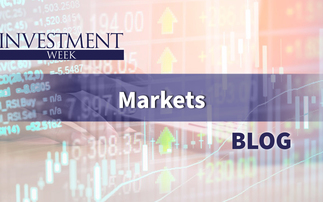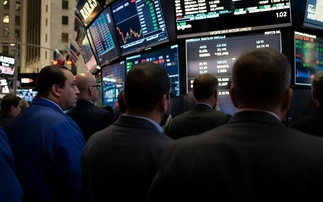The past fortnight has seen market commentary fixated on wild share price moves across certain US-listed stocks including GameStop (GME), as retail investors associated with Reddit forum r/WallStreetBets (r/WSB) piled in as part of a coordinated attack on hedge funds, via a short squeeze.
It has led to some heavy losses on both sides of the trade, most notably via the performance collapse of multi-billion dollar hedge funds, while other areas of the market have also been impacted as the long/short vehicles were forced to unwind unrelated positions.
Professional investors are split on whether the r/WSB phenomenon is an entirely new factor for market participants, or simply a re-run of the 1990s day trading boom, but consensus is emerging that this will not be the last time markets are rocked by newly empowered retail investors.
GME
Of all the stocks impacted by r/WSB in recent weeks, GME has been by far the most notable; rising by more than 1,900% from the start of the year to its peak on 27 January, crashing again the next day, before rising again once more.
Having begun 2021 trading at $17.25 and at one point rising to almost $500, GME shares were trading at $63.77 at the closing bell on Friday (5 February).
Retail investors favour passives during market sell-off
The impact for hedge funds with large net shorts against GME was significant, with Melvin Capital and Point72 Asset Management, for example, reportedly down 53% and 15% respectively in January.
"Several hedge funds in the US have now faced the reality of the maxim that ‘markets can remain irrational for longer than you can remain solvent'," said Ben Seager-Scott, head of multi-asset funds
at Tilney.
UK retail funds were essentially shielded from the pain, with analysis of FE fundinfo data showing that no fund in the Investment Association universe has significant exposure to GME.
However, many investors were perhaps unknowing participants in the volatility, with almost 100 ETFs holding 13.6 million shares, a 19% stake, in GME as of 29 January, according to data from Logicly. In the UK, five ETFs were exposed, including State Street Global Advisors' SPDR MSCI USA Small Cap Value Weighted UCITS ETF, with GME representing 2.4% of the 1,530-constituent vehicle.
Charles Jones and Tommy Faber of Waverton Investment Management explained in a paper last week that the GME story involved another secondary market impact beyond the stock itself.
"To fund the repurchase of the short positions, hedge funds became forced sellers of well-established companies held in their long book that typically have the best fundamental prospects," they wrote.
"The Goldman Sachs Hedge Industry VIP ETF is one of the best representations of these stocks… this index fell 4.5% in USD from 22 January to 29 January. Over the same time period, the top ten most heavily shorted stocks rose over 92%."
FCA bans sale of crypto-derivatives to retail investors
Schroder Income Growth trust portfolio manager Sue Noffke added that hedge fund de-risking had "ramifications for the wider market" beyond US equities and r/WSB-linked stocks, with heavily shorted UK names such as Pearson and Sainsbury's seeing price action.
"Any of these kind of market dislocations can create opportunities," she added. "You have to have an idea as an investor, whether you are a professional or an amateur investor, as to what valuations represent intrinsic value.
When there are movements leading to mis-pricings, either undervaluations or overvaluations, you would seek to take advantage of that."
Seager-Scott said Tilney and other firms had been watching movements closely for the broader impact on market sentiment of the GME trade.
"Virtually no professional investors were holding these stocks in the UK," he explained.
"But even if you were not holding the stocks affected, hedge funds can be quite influential in short-term movements. Even within the hedge funds that were not themselves exposed, you saw massive selling elsewhere."















